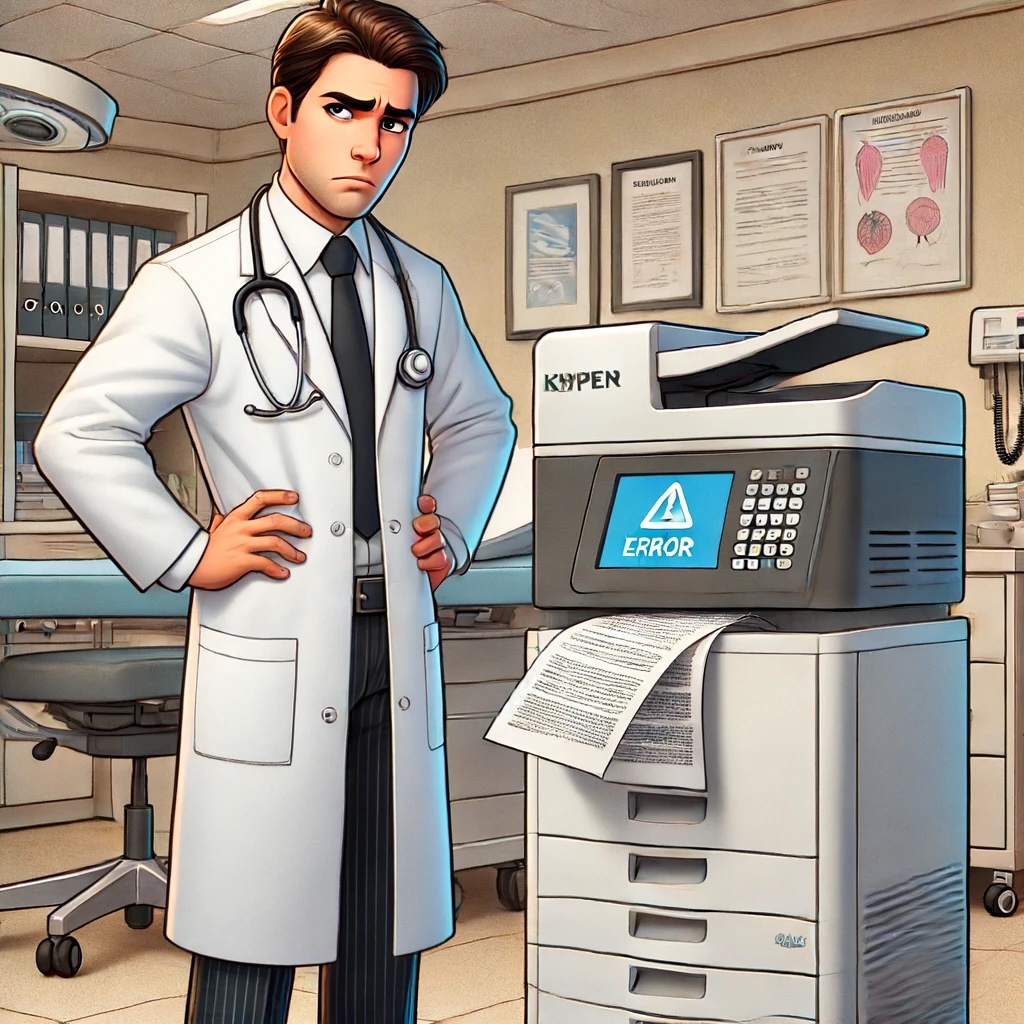Amidst the backdrop of ever-increasing wait times and reduced access to healthcare, frontline healthcare workers say they are losing hours of time each week due to poor technology. That’s according to new research from Epson.
The study, which surveyed 200 patient-facing healthcare workers in the UK, found that three quarters (72%) agreed that their already stretched teams are wasting time with poor technology, and a further three quarters (76%) agreed that more should be done to tackle the issue.
A core technology highlighted throughout the research was printers, with healthcare workers losing an average of 47 minutes a week to the slow or non-functioning printers — the equivalent of 3,980,955 workdays each year[i]. Two in 10 (18%) workers are losing one to two hours a week, while 6% are losing a shocking three to four hours a week due to printer issues.
With the digitisation of the UKs healthcare services and processes ongoing, there is still a heavy reliance on paper — meaning having access to fast, functioning printers is essential.
The research found, however, that slow or non-functioning printers have led to delays or difficulties updating patient records (34%), making appointments (29%), discharging patients (19%) and even delays or difficulties in providing medication or treatment (15%) to patients in need.
In fact, a quarter of those surveyed (23%) agreed that non-functioning or slow printers led to patients having less time with healthcare staff, with a further third (32%) stating that poor printers lead to more complaints from patients.
While the research shows the impact poor technology can have on the efficiency of healthcare services, 80% of respondents agreed that despite the time being wasted by non-functioning or slow printers, little action is being taken. Meanwhile, a third (36%) also believe that money is wasted in their respective departments.
Speaking about the findings, Nick Taylor, Head of Office Printing at Epson UK, commented: “It’s a stark picture. While many might assume printers are peripheral to the job of a patient-facing healthcare worker, it couldn’t be further from the truth. Poor technology is affecting patients, and practitioners are demanding action.”
“For many organisations, a simple switch from laser printers to Heat-Free inkjets could help. Heat-Free inkjets tend to have fewer moving and consumable parts to replace over the lifetime of the printer compared to lasers, reducing intervention and improving productivity and user satisfaction.”
Unlike laser printers, which use heat-intensive processes like fusing toner to a page, Epson’s Heat-Free Technology does not require heat in the ink ejection process, so making the switch can not only increase efficiency but can reduce the amount of energy consumed too.
With 80% of the healthcare workers agreeing that IT department/IT managers should provide printers that print quickly and require less maintenance to reduce difficulties and wasted time, it’s clear that a change needs to be made.
Healthcare leaders – and especially IT managers – need to take heed of patient-facing healthcare workers and consider a switch. In doing so, they’ll support patient outcomes.
About the research
The research was commissioned by Epson and conducted online by Coleman Parkes, an independent market research agency, among 200 front-line healthcare workers in the UK between July and November 2023. The study focused on the education and healthcare sectors across Europe, Middle East, and Africa.


